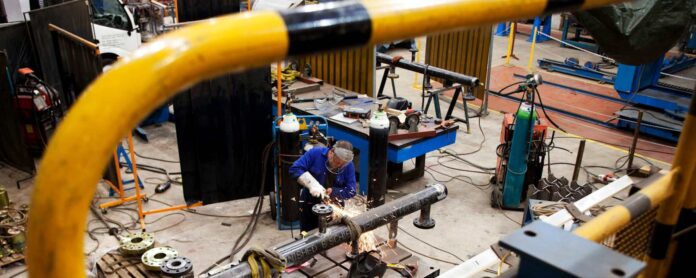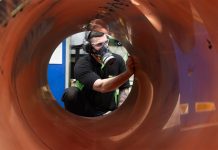August saw UK manufacturing output expand at the fastest rate for over six years, as companies and their clients restarted operations following coronavirus disease 2019 lockdowns.
The latest PMI Index out this morning also showed new order intakes also strengthened,
whereas the trend in employment remained weak with job losses recorded for the seventh straight month.
The seasonally adjusted IHS Markit/CIPS Purchasing Managers’ Index® (PMI®) rose to a 30-month high of 55.2 in August, up from 53.3 in July but a tick below the earlier flash
estimate of 55.3.
The PMI has posted above its neutral 50.0 mark for three consecutive months.
Manufacturing production rose at the fastest pace since May 2014, reflecting solid expansions across the consumer,intermediate and investment goods sub-sectors. The
steepest growth was registered in the intermediate goods category, whereas investment goods producers saw the lowest pace of growth.
Underpinning the scaling-up of output was the fastest increase in new orders since November 2017. The domestic market remained the prime source of new contract wins,
although new export orders rose moderately for the first time in ten months.
Manufacturers mentioned improved demand from the EMEA region, North America and Australia.The main factors driving production and new orders higher have been the re-opening of manufacturers and their clients following lockdowns and a loosening of other restrictions in place to combat COVID-19.
However Manufacturing employment declined at one of the steepest rates during the past 11 years, with reductions seen across the consumer, intermediate and investment
goods industries.
Small, medium and large-sized firms also implemented similarly marked cuts to staff headcounts.Stocks of purchases and finished goods both fell further, as companies looked to control costs and complete business delayed by the lockdown.
Input inventories fell despite a modest increase in purchasing activity.
Input price inflation accelerated to a 20-month high in August. Rising costs were linked to reduced availability for certain inputs and supply-chain disruption caused by COVID19. E
Exchange rates and increased freight costs were also mentioned. Part of the increase was passed on to clients,with selling prices rising at the fastest pace since March.
Business sentiment regarding future output prospects remained positive in August, staying close to July’s 28-month high. Companies linked their expectations of output growth
to hopes of a move back to more normal operating conditions over time, the launch of new products and the ongoing reopening of the domestic and global economies.
Rob Dobson, Director at IHS Markit, which compiles the
survey:
“The recovery of the UK manufacturing sector gathered pace in August. Output expanded at the fastest rate in over six years as new work intakes rose to the greatest extent since November 2017, led by an upturn in domestic demand and signs of recovering exports.
Business optimism also remained encouragingly robust and close to July’s recent peak.
“However, companies report that the current bounce is mainly driven by the restarting of manufacturers’ operations and reopening of clients as COVID-19 restrictions continue to be relaxed. Backlogs of work fell at an increased rate, hinting at spare capacity, and
the labour market remains worryingly weak, with job losses registered for the seventh straight month. The downturn in employment may have further to run as the government’s furlough scheme is phased out unless demand rises sharply.
“Given the fragility of demand and uncertain outlook, both in terms of COVID-19 and Brexit, policymakers may struggle to prevent a ‘surge-then-slump’ scenario from
developing.”







